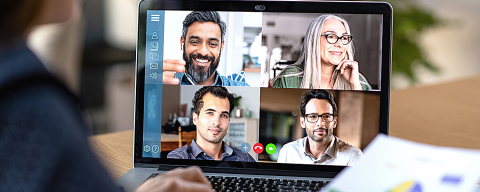

Here's a fascinating look at how the Libyan opposition in Benghazi have been hacking their internet access and other means of communication, in spite of the regime's efforts to create a blackout across the country.
The top-floor internet centre began operating on Tuesday, explains Sanalla, a dual British and Libyan citizen who has spent the past four years studying medicine at Benghazi's Garyounis University.
Ahmed Sheikh, a 42-year-old computer engineer who works in civil aviation, rigged the room's internet system. A cable leads from a large satellite dish on the roof through a hole in the wall to a receiver, which then connects to wireless routers. Most of the laptops connect directly to the routers by Ethernet cables, though on Saturday afternoon, the connection was hampered by heavy wind, intermittent rain and cloudy skies.
"You're getting two kilobytes a second, it's worthless," Sanalla told one of the other men trying to upload videos to YouTube.
At another laptop, 26-year-old Ahmed Yacoub was setting up an Arabic-language Wordpress blog: "The Voice of the February 17 Revolution" – named after the “day of rage” when the protests in Libya began to turn into a violent uprising.
Yacoub, who studies media and programming at Garyounis, said he and other Libyans gained "courage and guidance" from the revolutions in Egypt and Tunisia. Egyptians have been assisting the Libyan uprising, not only by ferrying aid across the liberated eastern border between the two countries, but by carrying media out of the internet blackout in Libya to upload in Egyptian border towns and by sharing tactical advice on how to confront a repressive government crackdown, Sanalla said.
Between the onset of heavy fighting on the 17th and the 21st, he said, protesters in Benghazi were suffering under a total internet blackout. Then Sheikh came and arranged his ad-hoc system. On Saturday, they had just arranged to make phone calls through the satellite connection and could now conduct Skype phone calls with the outside world. Sanalla had been reaching out to international media organisations such as CNN and the BBC using the program’s chat capability.
The crew in the room also administers the “Libyans” group on Facebook and tweets from the account "endtyranny01" – Sanalla's from when he wanted to remain anonymous.
Al Jazeera post







 This was one of our very early solar demonstrations - light would shine on a single photovoltaic cell, supplying enough electricity to power a motor. In 1939, GE went on to unveil the “Sun Motor” at The World’s Fair, a slightly larger version of the demo, that signaled GE’s vision for solar as a viable energy source.
This was one of our very early solar demonstrations - light would shine on a single photovoltaic cell, supplying enough electricity to power a motor. In 1939, GE went on to unveil the “Sun Motor” at The World’s Fair, a slightly larger version of the demo, that signaled GE’s vision for solar as a viable energy source.




 Apparently the Libyan government is trying to get mass SMS messaging going:
Apparently the Libyan government is trying to get mass SMS messaging going: